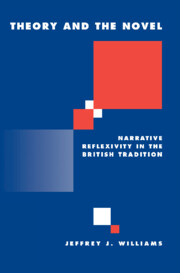3 - Conspicuous narrative
(The Turn of the Screw and Wuthering Heights)
Published online by Cambridge University Press: 22 September 2009
Summary
The rhetoric of frames
Paradoxical narrative
Narrative frames take a paradoxical status: they are a relatively commonplace and conspicuous feature in narrative, while at the same time they are occulted or valuable precisely insofar as they disappear. On the one hand, frames are constituted as invisible or disposable, as peripheral and only significant as a segue to the narrative proper. They function to announce the normative narrative, marking its status and hypostasizing its value, conversely effacing their own. As Jacques Derrida remarks in his meditation on the concept of the parergon in The Truth in Painting, the frame “is a form which has as its traditional determination not that it stands out but that it disappears, buries itself, effaces itself, melts away at the moment it deploys its greatest energy.” Frames presuppose their own forgetting, as if casting a spell on their audience, thus functioning as a lure or charmed path to the narrative (recall that the derivation of “spell” invokes not only the sense of enchantment, but very literally the telling of a story). As Mieke Bal puts it, in an almost magical way that would seem to exceed her narratological schema, “When the embedded text presents a complete story with an elaborate fabula, we gradually forget the fabula of the primary narrative.” From the standpoint of the normal codes of narrative representation, frames are rendered superfluous, somehow beyond the action, fabulated acts that are not acts.
- Type
- Chapter
- Information
- Theory and the NovelNarrative Reflexivity in the British Tradition, pp. 99 - 145Publisher: Cambridge University PressPrint publication year: 1998
- 6
- Cited by

